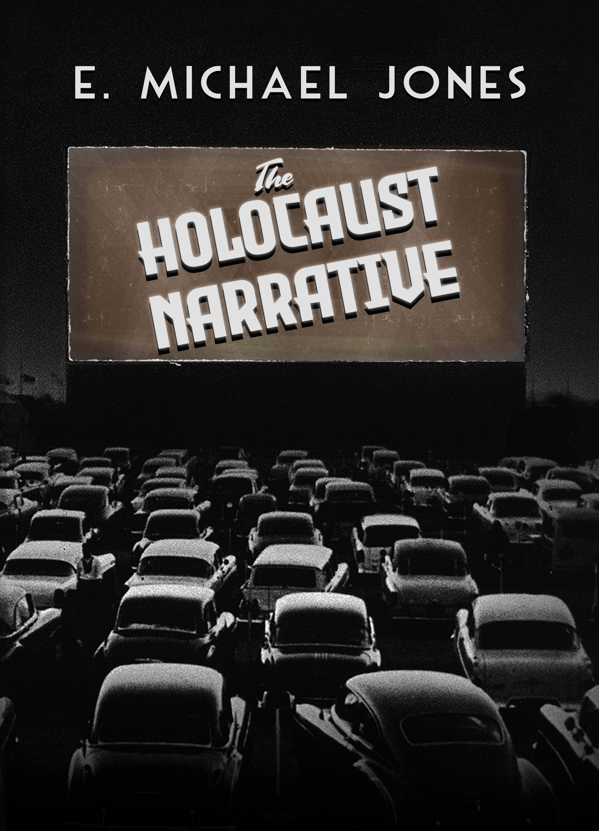Michael Rosen King of Visiting Authors
/En arche en ho logos, kai ho logos en pros ton theon, kai theos en ho logos
— John 1: 1
The John Fisher School in Purley has just appointed a new chaplain. Fr. James Clarke resigned the chaplaincy back in March of this year at the height of one of the most ludicrous and embarrassing debacles in the history of the John Fisher School and of the Archdiocese of Southwark. If canonized saints resort to the same posthumous expressions of exasperation as other mere mortals, I reckon that St. John Fisher is spinning in his grave at a serious rate of knots. The John Fisher School is also on the lookout for a new librarian. The previous incumbent, who’d only been in position since May 2021, is no longer at the school, but presumably for exactly the opposite reason to Fr. Clarke. The latter was outraged that a flagrantly homosexual author of flagrantly homosexual teen-fiction – one Simon James Green1 – had been invited to speak at a World Book Day event for the Year 8 and Year 9 boys (12-14 year olds). If the kind of reading material recommended by the then newly-appointed librarian2 is anything to go by (not to mention her rainbow-adorned Twitter farewell), it’s reasonable to assume that like many of her colleagues, the dear lady was unhappy that the visit of Simon James Green was cancelled. Now that the dust has settled, the big mystery is why the John Fisher School is not on the lookout for a new headmaster. The present incumbent, Mr. P. E. McCullough, saw fit to sanction the visit of Simon James Green. The governors of the school who agreed with Mr. McCullough that the visit should go ahead were – as part of its unexpectedly robust response – removed by the diocese. Three cheers for His Excellency Archbishop John Wilson and his Southwark Education Commission for directing the school to cancel the visit and for replacing the offending governors. Why they haven’t replaced Mr. McCullough remains a mystery.
Michael Rosen
In the wake of the excruciating spectacle of the John Fisher teachers (the school was founded in 1929 six years before the canonization hence the absence of ‘St’ from the school’s name) going on strike to protest the cancellation, we learn that the diocese had to accept the excruciating humiliation of negotiating – yep, you heard me – with its own rainbow bedecked teachers to assuage their sense of outrage that a homosexual propagandist of the highest order should not have access to the boys at the school. The negotiations, having brought about an end to teachers’ strike action,3 were then subject to somewhat contradictory interpretations: the diocese asserts that all future invitations to the school will be scrutinized to ensure conformity with the school’s Catholic identity and ethos, while the striking teachers’ union claims that:
We are pleased to have come to agreement with the school around the visit of an author whose writing includes LGBT+ relationships. The event will take place in the upcoming academic year within a series of events about the celebration of diversity within literature and with the educational outcome of fostering a love of reading. A range of other measures were agreed [to] including training and a re-affirming of commitment to diversity.4
No wonder the archdiocese is on the lookout for a new Director of Education. I think that Dr. Simon Hughes has earned every moment of retirement he will enjoy. A man can hear the phrase “celebration of diversity” yoked unceremoniously to “fostering a love of reading” only so often before he succumbs to the need for a darkened room, plenty of rest and perhaps, as time goes on, a little light gardening. You know that something is a bad idea whenever someone claims that it fosters a love of reading. No less than His Excellency Archbishop Wilson, Dr. Hughes deserves highest praise for doing what the diocese and the Catholic Education Service for England and Wales (CES) have failed to do for the past 50 years – say “No” to the insanity of “inclusion” in its schools, push back against the diabolical doctrine of “diversity.” The good archbishop and the good doctor acted not just for the Catholic Church but for the whole nation. Ordinary Englishmen are slowly but surely waking up to the reality of “inclusion” and “diversity.” As the scales fall from their eyes, they see that “inclusion” is a code-word not for unity but for discord, that diversity really means division. Everyone, apart it would seem from Mr. McCullough, is beginning to understand that when an author is invited into a Catholic school on the pretext of promoting the gospel of inclusion, what’s really going on is the imposition of the anti-gospel of division: you Catholics can have your saints and your prayers and your excellent academic achievement but you cannot present to the students in your school a coherent moral code. You Catholics can continue to get your fair share of public funding for your schools but you’ll need to perform – repeatedly – the miracle of presenting to your children two contradictory world views while maintaining the illusion that you have a unified world view, or, in the words of Mr. McCullough, that you have “a clear vision.”5
So what’s all this got to do with a 76-year-old atheist Jew named Michael Rosen? This question can only be answered by using the insights provided by a 74-year-old American Catholic named E. Michael Jones.
Reading and rebellion
Michael Rosen very nearly died in 2020. I for one am very happy that the man is still alive. Not only because it’s my duty as a Catholic to will what is truly good for a fellow sojourner, but also because I’d prefer to have a go at answering the above question while Michael Rosen is still in the land of the living. Otherwise, I’d lay myself open to the charge of speaking ill of the dead. So please join me in praying for the good health and well-being of Michael Rosen. Long live the King of Visiting Authors.
The normalization of the idea that a homosexual propagandist like Simon James Green should be given a platform in English Catholic schools has been decades in the making. Children’s books have long been deployed as state-of-the-art weapons in the culture wars. Put the latest ideological absurdity between the gaudy covers of a book and it’s almost certain to end up in a classroom or in the school library. If you’re the author, there’s a good chance that you’ll end up in the classroom or in the school library waxing lyrical about your book to the children. And you don’t even have to be a drag queen. Here in England the establishment of visiting authors as a kind of cultural Sanhedrin owes a great deal to the life and work of Michael Wayne Rosen. Now, let it be said straight away that I don’t think that Michael Rosen approves of drag queen story-time or soft-porn gay propaganda in schools. His seemingly anarchic approach to writing and performing children’s poetry and stories has not, to his eternal credit, extended to presenting, let alone promoting, sodomy or gender ideology to children, or indeed anyone else. For a man whom many regard as the conscience of the nation, it’s not a little remarkable that Michael Rosen has so remarkably little to say about all things LGBQT. The title of his 2021 homage to the foremost idol of post-Christian England, namely the National Health Service – “Many Different Kinds of Love” – speaks for itself in terms of LGBQT virtue-signaling, but restricts itself to expressions of strictly platonic love, as lavished on Michael Rosen by the range of medical staff and other well-wishers who helped him through his covid-induced brush with death. As Professor of Children’s Literature at Goldsmiths College, it goes without saying that he has to toe the LGBQT line, but he manages to interpret “queering” in a conveniently literary if inevitably subversive way: “Queering is a way of seeing how unorthodox figures in literature help us to see the orthodox world in new ways e.g. Willy Wonka, Loki, King Lear’s fool.”6
John Wilson Archbishop of Southwark
So now you know. The man himself could be described as a cross between Willy Wonka and a Shakespearian clown – goggle eyes and championship gurning capabilities to boot – but true to his everyman-socialist persona, lacking even a hint of Willy Wonka’s sartorial exuberance, apart, that is, from the occasional appearance in the likely-lad trilby beloved of Cockneys: Rosen traces his roots to Poland7 via Cockney ground-zero, namely London’s East End, location of the much-celebrated 1936 Battle of Cable Street which saw the march of Oswald Mosley’s Union of British Fascists thwarted by various anti-fascist and Jewish organizations, among which Rosen’s parents – then teenaged boyfriend and girlfriend – found themselves on the day.8
In his biographical homage to Roald Dahl – Fantastic Mr. Dahl (2012) – we learn that Rosen’s scruffiness gave rise to the first talking point between the pair when they met in 1980. Pointing to Rosen’s beard – he’s remained relatively clean shaven ever since – Dahl joked with Rosen’s son:
It’s probably got this morning’s breakfast in it. And last night’s dinner. And old bits of rubbish, any old stuff that he’s come across. You might even find a bicycle wheel in it9
Joe Rosen was only partly convinced, but as far as Rosen senior is concerned, Dahl was preaching to the converted. Rosen’s poetry can be described as the celebration of all the “any old stuff” that makes up the everyday experiences of any child. Food in the wrong places has remained a staple of the Rosen recipe book for children’s poetry:
The cats on the table eating someone’s bacon.
Someone’s wiped butter on their trousers.
Someone’s poured tea into the sugar bowl,
The baby is eating eggshells
When is it?
Breakfast time.10
Roald Dahl, the red-blooded reactionary, thought that food in the wrong place is a reason to outlaw the beard. For a thorough-going egalitarian like Michael Rosen, food in the wrong place is a reason to outlaw sugar-only sugar bowls. Mono-cultural sugar bowls constitute the worst kind of elitism. Say no to apartheid! You, child, had better wake up, for the breakfast times they are a changing.
My earliest memory of Michael Rosen’s work takes me back to the early ’90s when I got my hands on “A World of Poetry,” Rosen’s hand-picked compilation of an eclectic mix of poems and ballads and limericks and riddles and chants from across the world. This was the time when eclecticism was all the rage – you were a downright cultural dinosaur if you weren’t into Tuareg guitar twanging or Mongolian throat singing, as showcased by the likes of legendary Radio 1 DJ, John Peel. Michael Rosen was doing for the children of England what “world music” was doing for their older siblings, or indeed their parents:
We’ve called the book ‘A World of Poetry’ because that’s what it is: a world of thoughts and feelings, images and ideas collected from all over the world and spreading over thousands of years. The poems are by many kinds of people, so I hope this book is for many kinds of people11…
[…] This is just an excerpt from the December 2022 Issue of Culture Wars magazine. To read the full article, please purchase a digital download of the magazine, or become a subscriber!
(Endnotes Available by Request)










